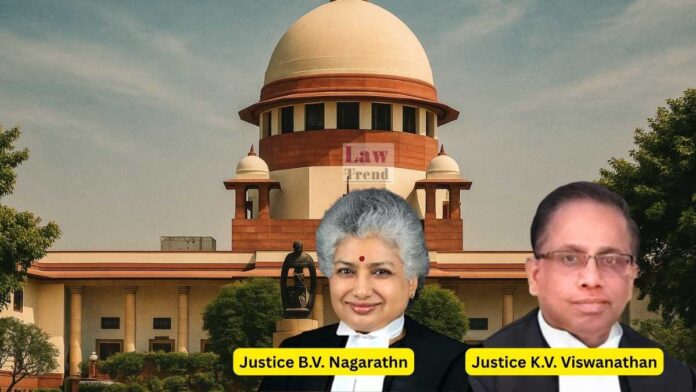The Supreme Court of India has dismissed an appeal, upholding the conviction and life sentence of a man for the kidnapping and rape of a minor girl, and for offences under the Scheduled Castes and the Scheduled Tribes (Prevention of Atrocities) Act, 1989. A bench of Justice B.V. Nagarathna and Justice K.V. Viswanathan found no
To Read More Please Subscribe to VIP Membership for Unlimited Access to All the Articles, Download Available Copies of Judgments/Order, Acess to Central/State Bare Acts, Advertisement Free Content, Access to More than 4000 Legal Drafts( Readymade Editable Formats of Suits, Petitions, Writs, Legal Notices, Divorce Petitions, 138 Notices, Bail Applications etc.) in Hindi and English.




